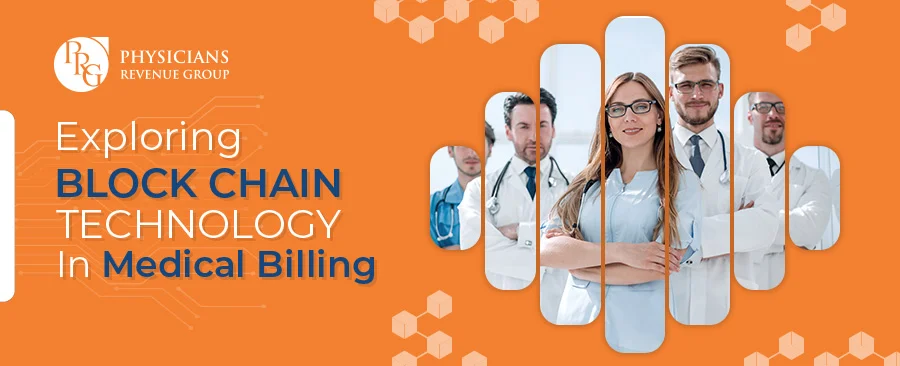
Email: info@prgmd.com | Call: +1 (630) 242-6474
Business hours: 9:00 to 5:00 | Monday to Friday
Email: info@prgmd.com | Call: +1 (630) 242-6474
Business hours: 9:00 to 5:00 | Monday to Friday

Table of Contents
ToggleBlockchain technology in medical billing comes with the potential for revolutionizing EHR interoperability and assisting in exchanging healthcare big data. Furthermore, Blockchain has tremendous applications in healthcare, especially for medical billing services.
But first, we must understand the following:
The many advantages of blockchain technology include its tamper-resistant nature and its decentralized nature of keeping digital ledgers. Furthermore, the most significant advantage of the technology is the impossibility of altering a published transaction in a user community that shares a ledger.
The key concerns of blockchain in medical billing include the following:
The advantages of using blockchain in medical billing vs. traditional healthcare database management systems include the following:
Note: The encryption is dependent on the patient’s private key.
The use of blockchain technology for healthcare can be visualized in 5 major areas, including:
Some applications of Blockchain technology in healthcare include the following:
Right now, the EHRs facilitate the auto-updating and sharing of healthcare information of a specific patient, all within a particular network/organization only. This limitation can be lifted if the data is organized. Doing so will facilitate researchers to access a broader spectrum of data and patterns of hundreds of thousands of patients. It will promote clinical research, in addition to reporting and identifying safety events and adverse events, and then also public health reporting.
Blockchain technology in medical billing can assist in creating a single system for storing constantly updating health records for rapid and secure retrievals through authorized users. Many mistakes can be avoided by avoiding miscommunication between healthcare professionals working with the same patient. What’s more, faster diagnosis and interventions can become a reality. Furthermore, blockchain technology in healthcare processes can offer personalized care to every patient.
Blockchain can offer a single transaction layer where all concerned organizations can share and submit data with a single secure system. The sharing of relevant data becomes much easier Through storing a specific set of standardized data on the chain, in addition to the private encryption links for separately stored info.
Blockchain technology in medical billing is at its early stage. However, improved security in blockchain systems promotes synchronized transactions. Furthermore, blockchain technology in healthcare can effectively enhance the management of healthcare data.
Blockchain technology in healthcare comes with the potential to assist in solving billing and data security problems. Blockchain technology offers a transparent way of storing and managing critical clinical trial data.
The distributed ledger technology of Blockchain simplifies and secures the transfer of patient medical data. Furthermore, blockchain technology in medical billing fortifies healthcare data defenses and helps manage the medicine supply chains.
Blockchain for medical records fuses IoMT (Internet of Medical Things) and blockchain technology for encrypting and saving a patient’s health information.
Share:
Categories
Recently Added

What is an ABN in medical billing?

What does a Clearinghouse do During Claims Submission?

What is EOR in Medical Billing?
We Would Love to Assist You!
We treat your data confidentially and don’t share any information with a third party.